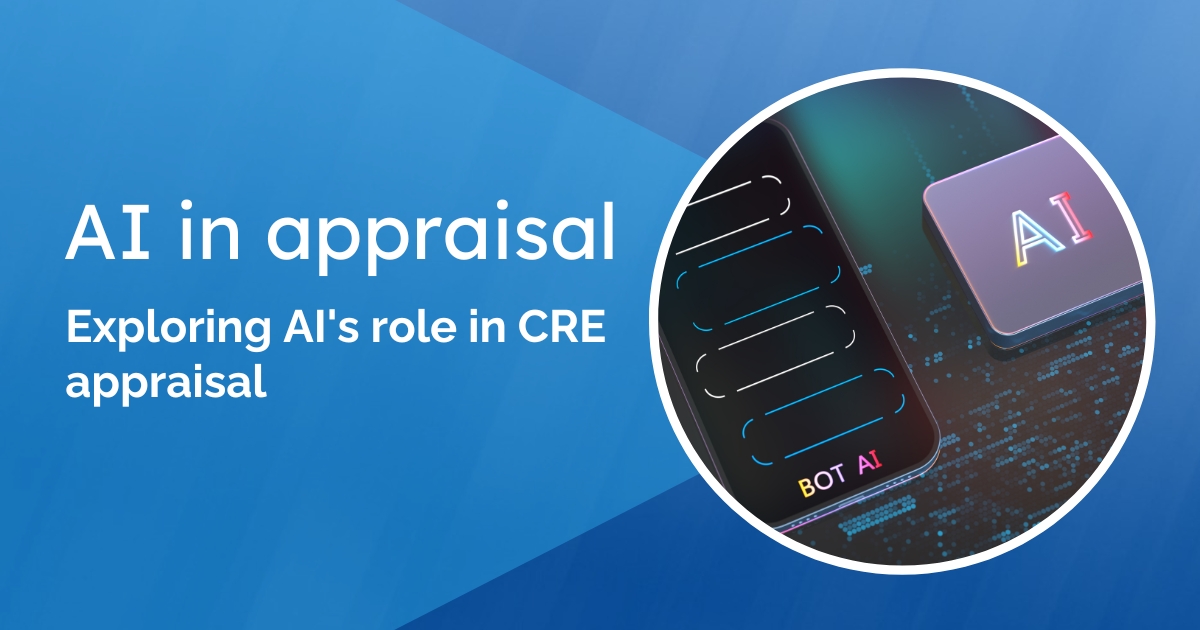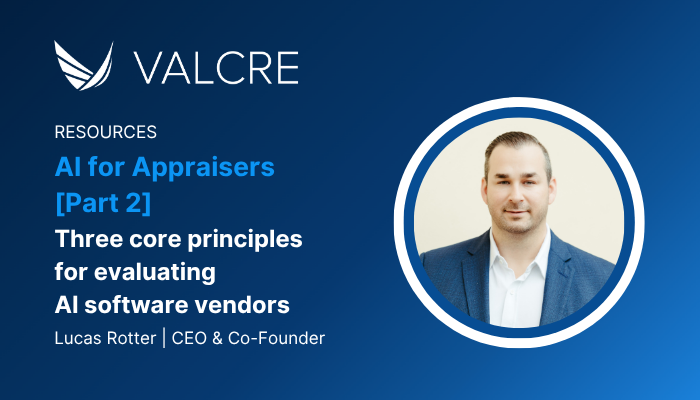
Introduction
In today’s rapidly evolving landscape, the intersection of technology and commercial real estate has given rise to new opportunities and challenges for appraisers. The incorporation of Artificial Intelligence (AI) into the valuation industry has stirred both excitement and uncertainty. As appraisers navigate this uncharted territory, one question looms large: Can AI truly coexist with appraisers in the valuation field?
The current state of AI in appraisal
The integration of AI in the valuation industry is still in its exploratory stages. Appraisers are treading carefully, strategically leveraging tools such as Chat GPT, Google AI, and Microsoft Copilot to enhance efficiency and scale their operations. One notable application is the use of ChatGPT to expedite various aspects of appraisals, including marketing, communication, business development, and appraisal work itself.
However, a crucial distinction exists between using AI for data organization and utilizing it for decision-making. As the valuation industry begins to integrate AI, it’s important to acknowledge the potential risks and need for careful consideration. Appraisers must ensure that AI serves as a responsible tool to uphold valuations rather than introducing unpredictability to the market.
Two initiatives underscore the significance of AI’s potential impact on the industry and society: Columbia University’s Center for AI in Business Analytics and FinTech, and the Center for AI Safety. These initiatives emphasize the growing recognition of AI’s role in real estate and finance and how to mitigate risk.
Embracing technology in appraisal
Embracing technology is no longer optional for appraisers aiming to thrive. The valuation landscape is witnessing a shift, with appraisers who fail to adopt technological advancements risking obsolescence. Tech tools like property databases, data analysis software, mapping tools, and drones are becoming staples in the arsenal of modern appraisers.
The upward trend in tech adoption is evident. Last year, Valcre’s software facilitated over 50,000 CRE appraisals worth more than $50 billion, indicating a growing reliance on technology. This trend is mirrored in Canada, where appraisers are increasingly seeking technological tools to elevate their capabilities in the face of intensifying competition.
Advantages of AI in appraisal
AI promises numerous advantages for appraisers:
- Time savings: AI automates repetitive tasks, boosting efficiency.
- Enhanced accuracy: AI processes vast datasets, leading to more accurate results.
- Efficient workflow: AI streamlines processes, improving overall efficiency.
- Data analysis: AI identifies trends and patterns for precise property value forecasts.
- Real-time market insights: AI continuously monitors markets, providing up-to-date information.
- Reduced bias: AI minimizes errors and biases, ensuring consistent, reliable reports.
- Scalability: AI enables appraisers to manage higher work volumes.
- Consistency: AI ensures uniformity in methodologies and reporting.
- Informed decisions: AI-generated insights offer broader perspectives.
- Cost efficiency: AI reduces operational costs and improves resource allocation.
Enhancing accuracy with AI in appraisals
The effectiveness of AI hinges on accurate inputs. Garbage in, garbage out – AI requires reliable data for meaningful results. AI can aid in data cleaning, prospect management, and building management, but only when coupled with accurate and comprehensive data.
For improved accuracy using AI:
- Select the right prompt: Choose appropriate prompts tailored to specific tasks.
- Input the prompt: Enter the prompt and related details for personalized responses.
- Evaluate the response: Review AI-generated content for accuracy.
- Iterate and refine: Modify prompts or provide feedback for better responses.
- Apply the content: Incorporate AI-generated content into appraisal reports.
- Repeat the process: Use AI for various sections of the appraisal report.
- Save and reuse templates: Save effective prompts as templates for future use.
Navigating the limitations of AI in appraisal
While AI holds promise, it’s essential to acknowledge its limitations:
- Starting with the right inputs: AI’s effectiveness depends on quality data.
- Responsible use: AI should enhance, not disrupt, valuations.
- Human expertise: Human insights and connections are irreplaceable.
- Transparency: Some AI models lack clarity in decision-making.
- Ethical concerns: Fairness, bias, and discrimination must be addressed.
The future role of AI for CRE appraisals
AI’s role in the valuation industry is set to expand:
- Early adoption: Appraisers must embrace AI-driven technologies.
- AI-powered reporting: Automated reporting will become common.
- Human in the loop: AI-assisted data analysis followed by human refining.
- Human-operated valuations: The essence of valuation remains human-driven.
- Comprehensive analysis: AI facilitates detailed analysis beyond data entry.
- Legitimate valuation approach: AI-generated value conclusions gain acceptance.
- AI as a tool: AI enhances appraisers’ work without replacing them.
Incorporating AI responsibly can transform the valuation landscape. AI’s potential applications and benefits will only continue to grow as we learn to work with it effectively.
Embracing an AI-enabled future
As AI’s capabilities evolve, appraisers can anticipate greater efficiency:
- Efficient data processing: AI enhances data processing efficiency.
- Application examples: AI aids in marketing, building management, and insights.
- Image-to-text data: AI-driven image processing enhances data utilization.
Key takeaways
The integration of AI into the valuation industry is inevitable. Appraisers must become early adopters of AI-driven technologies, fostering a symbiotic relationship between human expertise and technological advancements. By responsibly utilizing AI, appraisers can shape a future where accuracy, efficiency, and reliability define the valuation landscape.
Actionable insights
- Embrace the exploratory stage
- Use AI responsibly and in conjunction with human expertise
- Keep an open mind
- Be aware of model limitations
- Stay up-to-date
As the valuation industry embraces AI’s potential, a harmonious coexistence between human expertise and technological advancement awaits. By leveraging AI responsibly, appraisers can usher in a new era of accuracy, efficiency, and reliability in valuations.
PS – Gain deeper insights into AI’s role in CRE appraisal by checking out a recent webinar featuring Valcre’s CEO Lucas Rotter and CompStak’s VP of Data Science, Wayne Yu. Discover how AI is reshaping commercial real estate appraisal in this informative session.
![AI for Appraisers [Part 4]: Managing change for a successful AI rollout](https://www.valcre.com/wp-content/uploads/Blog-featured-image-–-AI-Content-Series-May-2025-8.png)

